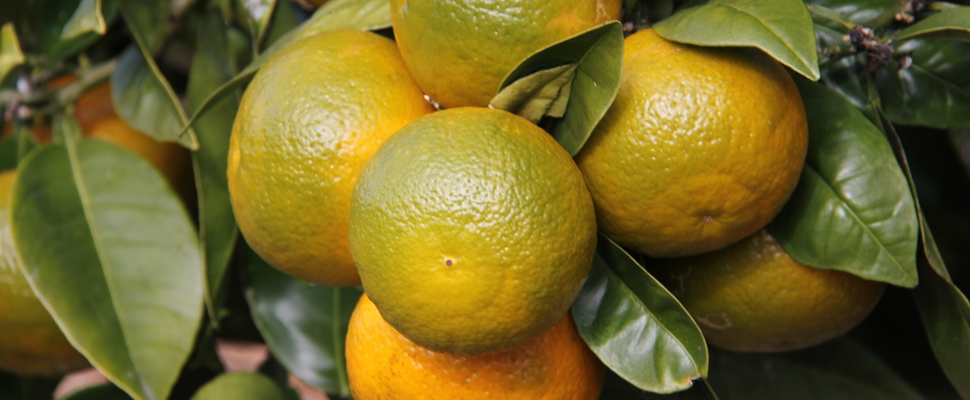
Fruit trees
The fruit trees we grow and recommend are those that crop well in Auckland, without pesticides or fuss.
We recommend having a range of varieties that crop at different times. Plant a fruit or nut for every season so you’ll always have something in your fruit bowl. Because they are so fresh, fruit and vegetables from your garden are often tastier than commercially grown, cool-stored varieties. You also know exactly what you are eating, as many commercial fruits are sprayed with chemicals. Growing fruit saves money and is satisfying to share with friends and family (home-made preserves are a great gift). Children love harvesting and eating from the garden too.
Uses
Fruit trees can be grown in an orchard or incorporated into your main garden. Their flowers add interest and attract pollinators, their fruit is delicious, and some give a bonus of autumn colour. They can be grown as a specimen tree or even trained into a fan or an espalier (a decorative style of fruit tree training where the tree is pruned and its branches tied against a flat frame such as a wall or along wires between posts) to save space.
What to grow
The Auckland climate often makes it challenging to produce disease and pest-free pip fruits and stone fruits. To avoid year-long spray programmes, select varieties known to be suited to Auckland. Some fruit trees, such as plums, require two compatible varieties to ensure fruit production. However, some plums, such as Prunus domestica 'Hawera', are self-fertile and can be planted as single specimen trees.
Visit our 'Plants for Auckland' database for the easiest fruit trees to grow in Auckland. For further suggestions, download our Fruit trees for Auckland brochure.
How to plant
- Thorough soil preparation before planting is essential. Work generous quantities of compost into the planting area and apply a dressing of general fertiliser. Most fruit trees prefer well-drained soil in full sun.
- Always plant at the same depth as they are in their container.
- Stake to support the tree from strong winds and ensure the roots become well established.
How to grow
- Apply an organic mulch annually to improve soil health, moisture retention and weed suppression. For young trees, higher nutrient compost-based mulch is beneficial.
- Always keep the area directly around the trunk free of grass and weeds as these compete for nutrients.
- Mulching after planting will help suppress weeds and maintain moisture.
- Check appropriate times to prune. For example, prune stone fruit after fruiting in summer to minimise disease. Pip fruit are mainly pruned in winter. Lessen the potential for pests and disease by pruning on a dry, sunny day.
- Citrus trees require no routine pruning apart from the removal of dead, damaged or tangled branches. Any sign of frass (looks like sawdust) indicates borer infestation. Prune the affected branch behind the borer hole, so the borer is removed. For more information, refer to our planting and pruning fruit tree video below.
- Plant herbs, bulbs and wildflowers around fruit trees to attract beneficial birds and insect life.
- Save gas and time by mowing less – over time, different species will come up through the grass, and beneficial biodiversity will start to build.
Hear top tips on planting and pruning fruit trees from Jack Hobbs, Auckland Botanic Gardens Manager:
Top image: Orange Citrus aurantium 'Seville'